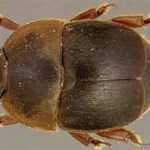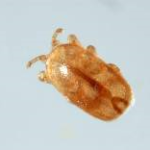Pests and Diseases
Beetles and mites.
Varroa

Varroa is a serious pest of honeybee colonies having reached the UK in 1992
For more information see
Beebase Varroa webpage
Small Hive Beetle

An Invasive species not currently in the UK but regarded as a serious threat to beekeeping.
For more information see
BeeBase Small Hive Beetle webpage.
Tropilaelaps

Currently, Tropilaelaps spp. is not present in the UK, but if introduced, could potentially cause major damage
For more information see
BeeBase Tropilaelaps webpage.
Pesticides
HSE FAQ on concerns about the use of pestides
Concern about the use of Pesticides
Neonicotinoid Insecticides
Northamptonshire Beekeepers Association supports and endorses the BBKA position on Neonicotinoid insecticides.
Reintroduction of Neonicotinoid insecticide to UK Sugar Beet Crop 2021
In January 2021, after two seasons without Neonicotinoid use in UK sugar beet, the Government announced the Emergency Authorisation (derogation) for the limited use of Syngenta’s neonic seed treatment – thiomethoxam (Cruiser SB), for sugar beet only, in season 2021.
Neonicotinoid seed dressing will NOT be applied to the 2021 Sugar Beet crop. Due to the cold weather in January and February reducing the aphid population it has been deemed unnecessary this season. Click for more information
Foulbrood Diseases of Honeybees
There are 2 foulbrood diseases of honeybees both of which, if found, UK beekeepers are required by law to notify to the National Bee Unit (NBU)- a part of the Government Animal and Plant Health Agency (APHA) or their Regional Bee Inspector.
These are American Foul Brood and European Foul Brood
The NBU Guidance on these diseases can be found here.
Foulbrood Diseases of Honeybees –
Contact details for the Bee Inspectors can be found here